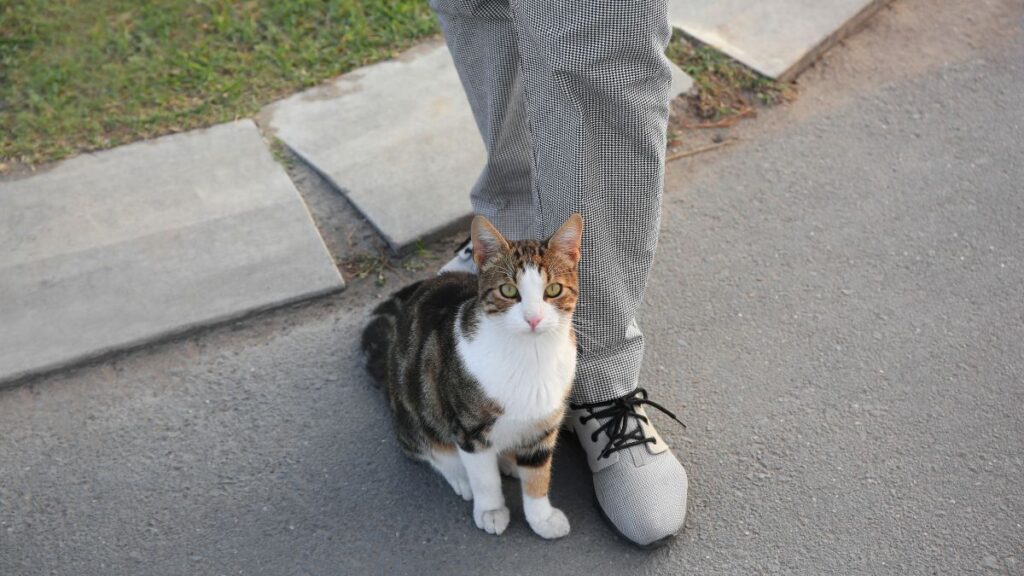Why Does My Kitty Follow Me Around The House All The Time?
For many cat owners, having a feline companion that follows them around the house is a common yet endearing behavior.
In this article, we’ll delve into the reasons behind your kitty’s constant companionship and explore the various factors that contribute to this adorable shadow-like behavior.

1- The Nature of Cats
Independent Yet Social Creatures
Cats are known for their independent nature, but they are also social creatures that form strong bonds with their human companions. Understanding this balance is key to comprehending why your cat chooses to be by your side.
2- Bonding and Attachment
Creating Strong Human-Feline Bonds
Cats form deep attachments to their owners through bonding activities, such as petting, play, and feeding. The constant presence reflects a strong bond and a desire for companionship.
3- Curiosity and Exploration
A Natural Instinct
Cats are inherently curious creatures. Following you around allows them to explore their environment and stay aware of changes. This behavior is rooted in their natural instincts for survival.
4- Territory and Security
Seeking Familiarity and Safety
Your cat may follow you to mark and secure their territory. By staying close, they create a sense of familiarity and security, both essential for their well-being.
5- Mimicking Human Behavior
Feline Imitation
Cats often mimic human behavior as a form of flattery. If they observe you moving from room to room, they may follow suit, reflecting their desire to be part of your activities.
6- Attention and Affection
The Desire for Interaction
Constant companionship is often a way for cats to seek attention and affection. By being near you, they increase the likelihood of interaction and positive reinforcement.
7- Loneliness and Anxiety
Addressing Emotional Needs
Cats, like humans, can experience loneliness and anxiety. Following you around provides comfort and alleviates these feelings, contributing to their overall emotional well-being.
8- Encouraging Independent Play
Balancing Attachment
While constant companionship is heartwarming, it’s essential to encourage independent play. Providing toys, scratching posts, and cozy spots allows your cat to balance attachment with healthy alone time.
9- When to Be Concerned
Changes in Behavior
If your cat’s behavior suddenly changes, such as avoiding you or becoming overly clingy, it could signal underlying issues. Monitor for significant shifts and consult your veterinarian if needed.
Conclusion
Cherishing the constant presence of your kitty is a testament to the strong bond you share.
Understanding the various factors contributing to this behavior allows you to foster a healthy, loving relationship with your feline friend.
FAQs About Feline Companionship
Q: Is constant following a sign of distress?
A: While constant following is usually a sign of affection, sudden changes in behavior may indicate distress. Monitor for signs of stress and consult with your veterinarian if concerned.
Q: Can I encourage more independence in my cat?
A: Yes, provide stimulating toys and safe spaces for your cat to explore independently. Gradually encourage alone time while maintaining positive interactions.
Q: Should I be worried if my cat suddenly stops following me?
A: Yes, abrupt changes in behavior can be concerning. Monitor for signs of illness or distress and seek veterinary advice if the behavior persists.
Q: What can I do if my cat follows me to every room?
A: Embrace the companionship while also encouraging independent play. Provide a variety of engaging toys and create cozy spots for your cat to enjoy alone time.
